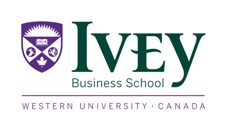The Canadian economy is forecasted to have 2.4 million job openings between 2018 and 2021, according to RBC’s recent Humans Wanted whitepaper. That’s good news. After all, it means jobs will still be available as the decade turns and more and more robots enter the workforce.
Unfortunately, the jobs in question will be different from what currently exists, as an estimated 50 per cent of occupations will undergo a skills overhaul. As RBC pointed out, this is problematic. “We’re hurtling towards the 2020s with perfect hindsight, not seeing what’s clearly before us. The next generation is entering the workforce at a time of profound economic, social and technological change. We know it. Canada’s youth know it. And we’re not doing enough about it.”
In 2012, the non-profit group Let’s Talk Science released a Spotlight on Science Learning report that noted that 70 per cent of Canada’s top jobs require some form of STEM (Science, Technology, Engineering, Math) education. At the time, less than half of Grade 11 and 12 students were taking math and science courses. And as we enter the next stage of the age of disruption, digital literacy is only going to become more critical to maintaining a competitive economy.
Canada, of course, isn’t ignoring the issue. On the national level, accessible programs sponsored by non-profit groups have made some progress in recent years. Let’s Talk Science, for example, has been able to reach 260,000 students across Canada by providing free curriculum-based STEM activities in over 491 unique communities. Canada Learning Code, another non-profit, has provided 2,267 educational events since August 2011.
Good things are also happening locally. On May 31, for example, the City of Toronto and the Toronto Public Library partnered with more than 35 local companies and organizations to host Digital Literacy Day, which offered more than 110 free events for all ages.
“It’s imperative that we make the shift from k–12 to k-gray.”
Meanwhile, federal politicians are stepping up to the plate. Launched last year, Ottawa’s $50-million CanCode program started supporting educational opportunities related to coding and digital skills development aimed at Canadian youth from kindergarten to grade 12 (K–12). It also supports related training and professional development for K–12 teachers. Ottawa’s Digital Literacy Exchange Program has also committed about $30 million over the next five years to support non-profit organizations that teach fundamental digital literacy skills to Canadians.
Simply put, resources are being made available to ensure that Canadians can be productive in the digital age. So perhaps the question isn’t whether Canada is doing enough to battle the digital literacy gap, but whether working Canadians are personally taking the initiative to remain valuable as employees.
Canada’s future prosperity doesn’t just rest on the skills of our youth. The digital literacy gap is an issue that crosses generations. As Toronto’s chief advocate for innovation, Michelle Holland, recently stated during a change leadership conference: “It’s imperative that we make the shift from k–12 to k-gray,” meaning embrace lifelong learning. To do this, Gen-Xers, Millennials, and members of Generation Z alike must buy into the need for personal upskilling. This includes organizational leaders, executives, managers, and directors.
Artificial intelligence and other emerging technologies will disrupt everything from value chains to traditional organizational structures. And understanding the driving forces behind coming waves of disruption is key to surviving and thriving in the paradigm shifts expected to take place across all industries and sectors.
There are plenty of places to start personal upskilling. Using Course Compare, you can compare digital skill course offerings across Canada. Digital skill training companies like BrainStation, RED Academy, and Lighthouse Labs offer a plethora of courses for data analytics, product management, digital marketing, UI & UX design, web & app development, and more.
Those who adapt best are the ones who anticipate where trends are shifting, as opposed to reacting when they appear. It is up to us to close the digital literacy gap individually.



Great Information sharing .. I am very happy to read this article .. thanks for giving us go through info.Fantastic nice. I appreciate this post.
top colleges in british columbia